Wildlife Conservation and Ethical Hunting: Can They Coexist?
In a world where the balance between nature and human activity is increasingly fragile, the question of whether wildlife conservation and ethical hunting can coexist becomes more pressing. It might seem like a paradox at first glance—how can hunting, an activity often associated with death and destruction, contribute positively to the conservation of wildlife? However, the reality is far more nuanced. Ethical hunting, when conducted under strict guidelines and with a focus on sustainability, can play a pivotal role in preserving ecosystems and supporting local communities. This article aims to unravel the intricate relationship between these two concepts, shedding light on how they can indeed work hand in hand for the greater good of our planet.
The essence of ethical hunting lies in its philosophy. It is not merely about pursuing animals for sport; rather, it encompasses a deep respect for wildlife and a commitment to conservation principles. Ethical hunters often adhere to a set of guidelines that prioritize the well-being of animal populations and their habitats. This means hunting only when populations are robust enough to withstand it, using methods that minimize suffering, and contributing to the funding of conservation efforts. By understanding the motivations behind ethical hunting, we can begin to see how it aligns with the goals of wildlife conservation.
Moreover, conservation organizations have emerged as crucial players in this dynamic. These organizations work tirelessly to promote sustainable hunting practices, ensuring that hunters are educated about the ecosystems they interact with. They often implement programs that regulate hunting seasons, quotas, and methods, striking a balance between wildlife protection and the rights of hunters. Through their efforts, conservation organizations are not only preserving wildlife but also fostering a sense of responsibility among hunters, turning them into advocates for conservation.
Conservation organizations play a crucial role in promoting sustainable hunting practices. Their initiatives often include educational programs aimed at both hunters and the general public, emphasizing the importance of ethical hunting in the context of wildlife conservation. By raising awareness about the ecological impact of hunting and the necessity of maintaining healthy animal populations, these organizations help cultivate a culture of respect and responsibility among hunters.
There are numerous successful case studies where ethical hunting has made significant contributions to conservation efforts. For instance, in several African countries, regulated hunting has been shown to help maintain wildlife populations by providing funds for conservation programs. These funds are often used for anti-poaching initiatives, habitat restoration, and community development projects. Such examples illustrate how ethical hunting can create a win-win situation for both wildlife and hunters.
Community involvement is key to the success of ethical hunting initiatives. Local communities are often the first line of defense against poaching and habitat destruction. When they are engaged in hunting practices that are ethical and regulated, they become stakeholders in the conservation process. Educational programs that inform locals about the ecological importance of wildlife can lead to greater community support for conservation efforts. In turn, this support can foster a more sustainable relationship between humans and wildlife.
Exploring the economic benefits of ethical hunting can illustrate its potential positive impact on conservation funding. Hunting can generate substantial revenue for wildlife protection initiatives. For example, hunting licenses, fees, and taxes collected from hunters can be reinvested into conservation programs, creating a sustainable funding model. This economic incentive not only supports the preservation of wildlife but also promotes local economies through job creation in tourism and conservation-related sectors.
Despite its benefits, ethical hunting faces numerous challenges. The rise of poaching and habitat destruction poses significant threats to wildlife populations. Additionally, negative perceptions of hunting can hinder the acceptance of ethical practices. Addressing these challenges requires a concerted effort from all stakeholders, including governments, conservation organizations, and local communities. Only through collaboration can we hope to overcome these obstacles and promote a harmonious coexistence between wildlife conservation and ethical hunting.
A robust regulatory framework is essential for ensuring ethical hunting practices. Laws and policies governing hunting and conservation efforts vary widely across regions, impacting how these practices are implemented. In some areas, strict regulations help maintain wildlife populations, while in others, lax enforcement can lead to overhunting and ecological imbalance. It is crucial to establish and uphold regulations that support ethical hunting while safeguarding wildlife.
International agreements play a pivotal role in wildlife conservation. Treaties such as the Convention on International Trade in Endangered Species (CITES) set guidelines for hunting practices globally. These agreements ensure that hunting does not threaten endangered species and promote sustainable practices that benefit both wildlife and local communities. Understanding the implications of these treaties is vital for anyone involved in hunting and conservation.
Local legislation can significantly impact hunting practices. In some regions, laws may support ethical hunting initiatives, providing a framework for sustainable practices. However, in other areas, outdated or poorly enforced laws can undermine these efforts. It is essential for local communities to advocate for regulations that prioritize wildlife conservation while allowing for ethical hunting practices.
- Can ethical hunting really contribute to wildlife conservation? Yes, when managed properly, ethical hunting can provide funding for conservation efforts and help maintain healthy animal populations.
- What are some examples of successful ethical hunting programs? Many African countries have implemented regulated hunting programs that fund anti-poaching initiatives and habitat restoration.
- How can communities get involved in ethical hunting? Local communities can participate through education, advocacy, and by becoming stakeholders in conservation efforts.
- What challenges does ethical hunting face? Ethical hunting faces challenges such as poaching, habitat destruction, and negative public perceptions.

The Philosophy of Ethical Hunting
When we dive into the philosophy of ethical hunting, we uncover a tapestry of values, beliefs, and practices that shape how hunters interact with wildlife and the environment. At its core, ethical hunting is not merely about the act of hunting itself; it embodies a deeper understanding of our responsibility towards nature. It prompts us to ask questions such as: What does it mean to hunt ethically? How can we ensure that our actions contribute positively to wildlife conservation?
Ethical hunting is grounded in the principle of sustainability. This means that hunters strive to maintain wildlife populations at healthy levels, ensuring that their activities do not lead to the decline of species or the degradation of ecosystems. It emphasizes the importance of respect—for the animals being hunted, for the land, and for the broader community that shares this environment. Ethical hunters are often guided by a set of principles which include:
- Respect for Wildlife: Understanding the role of each species in the ecosystem and hunting only when it is sustainable.
- Fair Chase: Engaging in hunting practices that do not unfairly advantage the hunter over the hunted.
- Conservation Mindset: Supporting initiatives that protect habitats and promote biodiversity.
Moreover, ethical hunting encourages the idea of connection. Many hunters view their activities as a way to connect with nature, fostering a sense of stewardship over the land. This connection often translates into a commitment to conservation efforts, as hunters recognize that their actions can have lasting impacts on the environment. They become advocates for wildlife protection, often participating in or funding conservation projects aimed at preserving habitats and species.
However, the philosophy of ethical hunting also invites scrutiny and debate. Critics argue that hunting, regardless of the ethics involved, can lead to negative consequences for wildlife. This perspective urges us to critically evaluate our motivations and the implications of our actions. Are we hunting for sport, or for sustenance? Is the thrill of the chase worth the potential harm to wildlife populations? These questions are vital as they challenge hunters and conservationists alike to find common ground in their goals.
In essence, the philosophy of ethical hunting is about striking a balance. It calls for a harmonious relationship between humans and wildlife, one where hunting can coexist with conservation efforts. By fostering a culture of respect, sustainability, and community involvement, ethical hunting can serve as a powerful tool in wildlife management. It encourages hunters to be more than just participants in a sport; they become active contributors to the health of our planet.
Ultimately, understanding the philosophy of ethical hunting is crucial for anyone involved in wildlife conservation. It lays the groundwork for a collaborative approach that seeks to protect our natural resources while allowing for responsible hunting practices. As we navigate the complexities of this relationship, we must remember that ethical hunting is not an end in itself but a means to promote a healthier, more balanced ecosystem for generations to come.
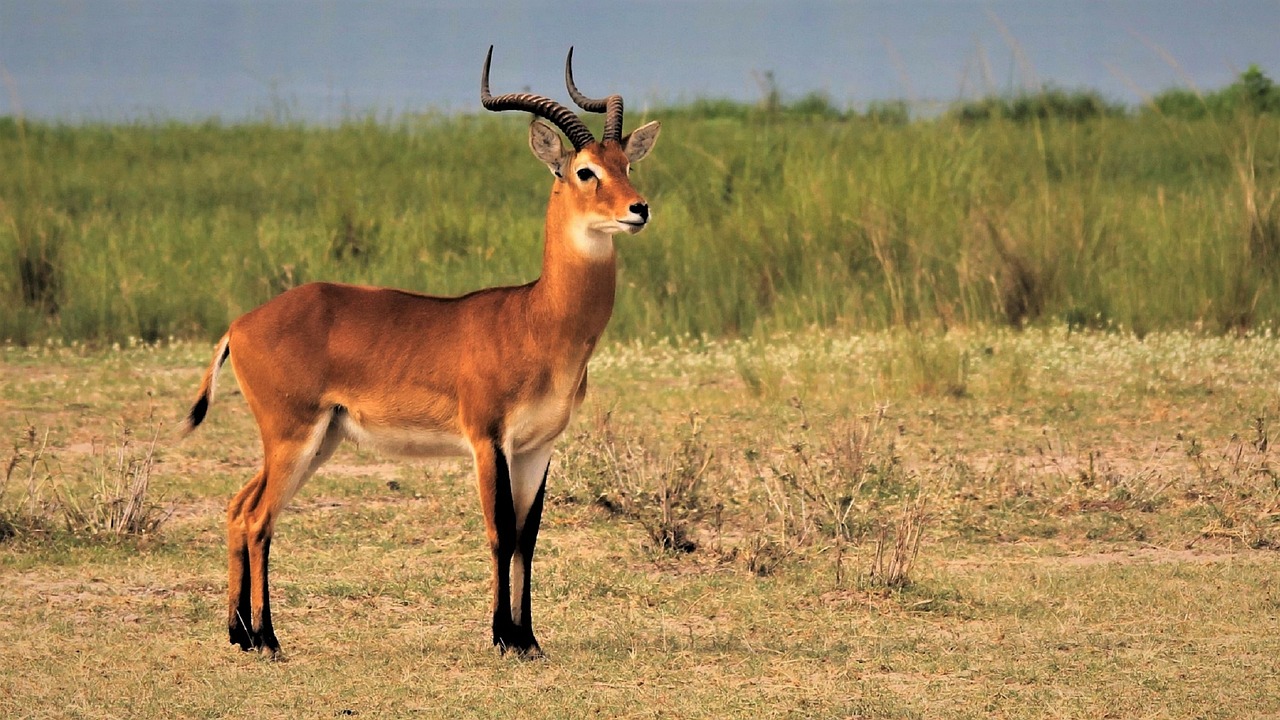
The Role of Conservation Organizations
When we think about wildlife conservation, the first thing that often comes to mind is the tireless work of conservation organizations. These groups are the unsung heroes of the natural world, tirelessly advocating for the protection of wildlife and their habitats. They bridge the gap between ethical hunting and conservation, showing that these two can indeed coexist. But how do they manage to strike this delicate balance? Let’s dive deeper into their multifaceted roles.
At the heart of conservation organizations' mission is the belief that sustainable practices can lead to a healthier ecosystem. They work on the premise that ethical hunting can actually contribute to wildlife management. By implementing hunting regulations and promoting responsible practices, these organizations help ensure that hunting does not lead to the depletion of wildlife populations. Instead, it can be a tool for maintaining ecological balance. For instance, organizations often conduct research to determine the health of animal populations and set quotas that allow for hunting without threatening species survival.
Moreover, conservation organizations are instrumental in educating both hunters and the general public about the importance of wildlife conservation. They create programs that teach sustainable hunting practices, emphasizing the need for respect towards wildlife and their habitats. This education extends beyond just hunters; it also targets local communities, ensuring that everyone understands the significance of conservation efforts. For example, many organizations host workshops and seminars, where they share knowledge about local ecosystems and the role of hunting in maintaining them.
One of the most impressive aspects of conservation organizations is their ability to foster partnerships. They collaborate with various stakeholders, including government agencies, local communities, and even hunters themselves. By creating a network of interested parties, these organizations can implement comprehensive strategies that benefit both wildlife and hunting practices. They often advocate for policies that support ethical hunting while simultaneously pushing for stricter regulations against poaching and illegal hunting. This collaborative approach not only enhances conservation efforts but also ensures that ethical hunting can thrive.
Furthermore, conservation organizations often engage in habitat restoration projects. By improving the living conditions for wildlife, they create an environment where both animals and ethical hunters can flourish. These projects can include reforestation, wetland restoration, and the establishment of protected areas. Such efforts not only benefit wildlife but also enhance the hunting experience, as healthier ecosystems lead to more abundant wildlife populations.
To illustrate their impact, let’s take a look at some key statistics:
| Year | Conservation Projects Launched | Wildlife Populations Increased |
|---|---|---|
| 2018 | 150 | 15% |
| 2019 | 200 | 20% |
| 2020 | 250 | 25% |
These numbers showcase the tangible benefits that arise from the efforts of conservation organizations. As they continue to advocate for ethical hunting practices, they not only protect wildlife but also ensure that future generations can enjoy the thrill of hunting in a sustainable manner. It's a win-win situation, where both wildlife conservation and ethical hunting can thrive side by side.
In conclusion, the role of conservation organizations in promoting ethical hunting cannot be overstated. They serve as a vital link between hunters and conservation efforts, ensuring that both can coexist harmoniously. Through education, collaboration, and habitat restoration, these organizations are paving the way for a future where wildlife is protected, and ethical hunting practices are celebrated.
- What is ethical hunting? Ethical hunting refers to hunting practices that prioritize animal welfare and environmental sustainability.
- How do conservation organizations support ethical hunting? They provide education, set hunting regulations, and promote habitat restoration efforts.
- Can hunting help conservation efforts? Yes, when regulated properly, hunting can contribute to wildlife management and habitat preservation.
- What challenges do conservation organizations face? They often confront issues like poaching, habitat destruction, and public misconceptions about hunting.
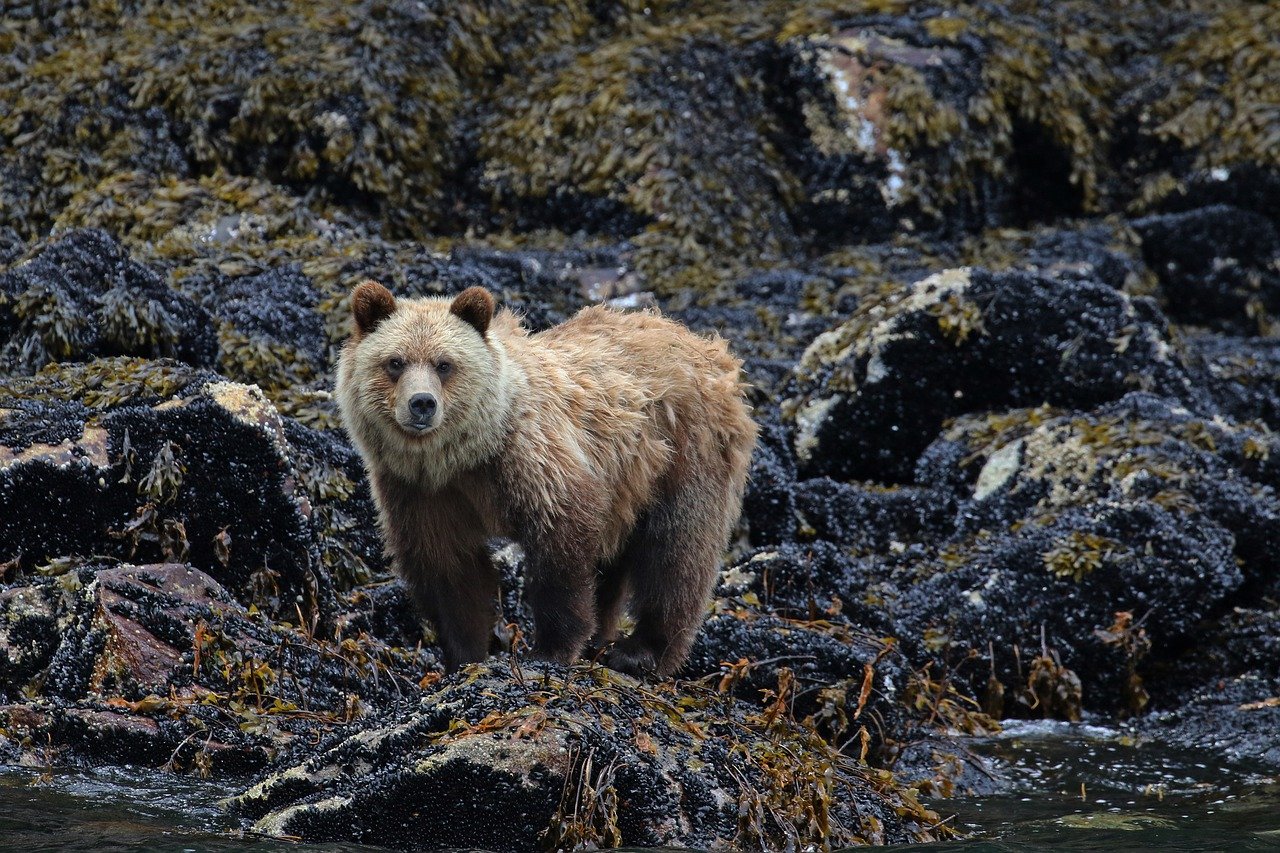
Successful Case Studies
When we think about wildlife conservation and ethical hunting, it’s easy to assume they are at odds with one another. However, numerous successful case studies illustrate how these two concepts can actually work hand in hand. One standout example is the Namibian Community-Based Natural Resource Management (CBNRM) program, which has become a beacon of hope for both wildlife and local communities. Through this initiative, local communities are empowered to manage their natural resources, including wildlife, in a sustainable manner. The results? Increased wildlife populations and improved livelihoods for people living in these areas.
Another remarkable case is the North American Model of Wildlife Conservation, which emphasizes the role of hunters in conservation efforts. This model has successfully funded wildlife conservation through hunting licenses and fees, generating billions of dollars for habitat restoration and species protection. It’s a classic example of how ethical hunting can provide the necessary resources for conservation initiatives. The funds collected from hunters are often allocated to various wildlife programs, which can include everything from anti-poaching efforts to habitat preservation.
Let’s not forget about the African Elephant Conservation initiatives, which have shown that regulated hunting can actually contribute to the survival of elephant populations. In countries like Botswana and Tanzania, controlled hunting quotas help manage elephant populations while generating revenue that is reinvested into conservation efforts. This approach has led to healthier ecosystems and a reduction in human-wildlife conflict, showcasing a win-win scenario for both wildlife and communities.
In all these cases, the key ingredients for success include community involvement, transparent regulations, and a commitment to sustainability. Local communities are often the best stewards of their environments, and when they see the tangible benefits of wildlife conservation—like economic gains from hunting—they become motivated to protect these resources. Moreover, educational programs that inform these communities about the importance of biodiversity and ethical hunting practices play a crucial role in fostering this positive relationship.
To summarize, the successful case studies mentioned above highlight that ethical hunting can coexist with wildlife conservation, provided there is a strong framework supporting both. They demonstrate that with the right approach, we can turn potential conflicts into collaborative efforts that benefit both wildlife and humanity. As we look to the future, these models can serve as a roadmap for other regions grappling with similar challenges, proving that ethical hunting isn't just a pastime—it's a vital component of conservation.
- What is ethical hunting? Ethical hunting refers to practices that ensure the sustainability of wildlife populations and respect for animal welfare.
- How does hunting contribute to conservation? Hunting can provide funding for conservation programs, create economic incentives for local communities, and help manage wildlife populations.
- Are there regulations governing ethical hunting? Yes, many regions have specific laws and regulations that govern hunting practices to ensure they are sustainable and ethical.
- Can communities benefit economically from ethical hunting? Absolutely! Ethical hunting can generate revenue through licenses, tourism, and sustainable resource management, benefiting local economies.
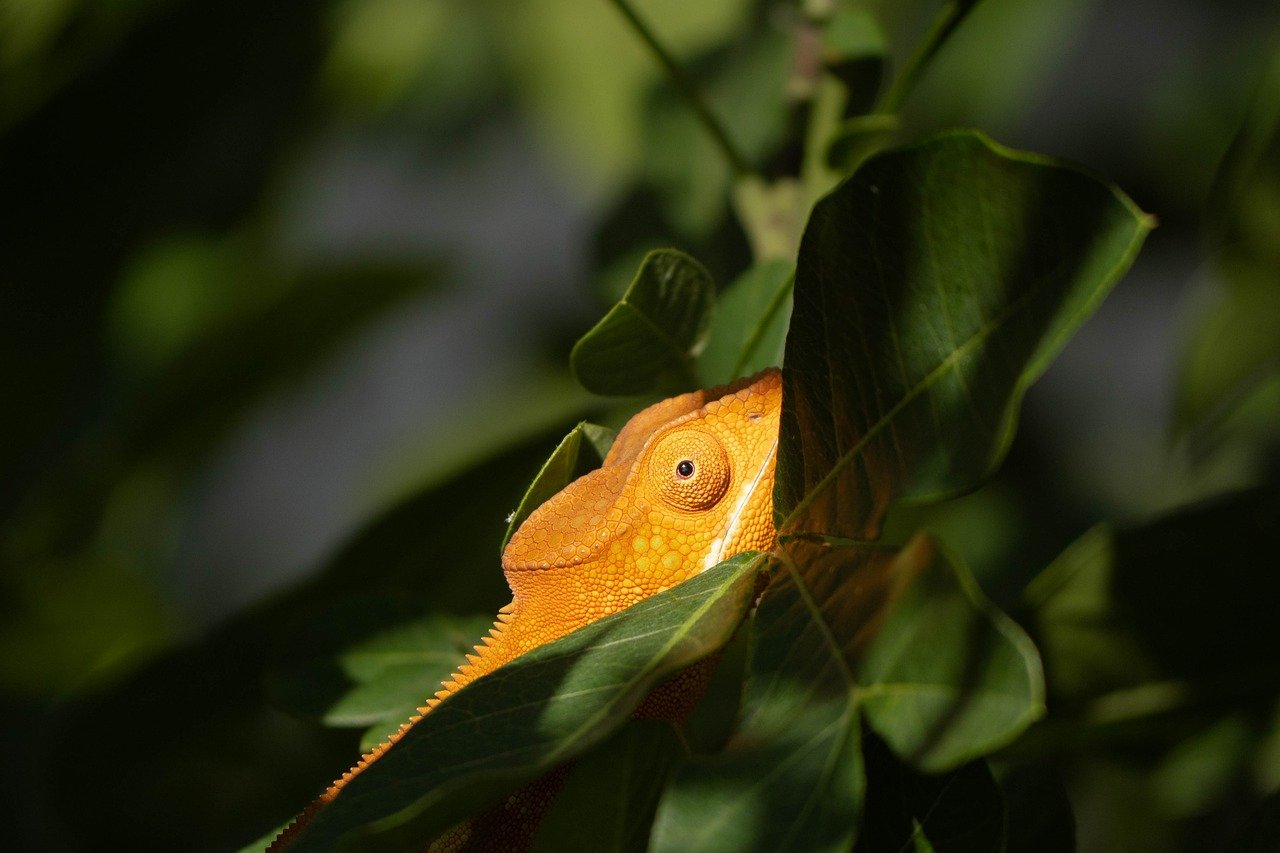
Community Involvement
When it comes to ethical hunting and wildlife conservation, is not just beneficial; it's absolutely essential. Think of a thriving ecosystem as a well-oiled machine, where every cog plays a pivotal role. In this context, local communities are the cogs that can either enhance or hinder the entire system. Engaging local people in conservation efforts creates a sense of ownership and responsibility, turning them into stewards of their environment. This is not just about hunting; it's about fostering a deep connection between the community and the wildlife that surrounds them.
One of the most effective ways to ensure that ethical hunting practices are upheld is through education. When communities understand the importance of sustainable hunting, they are more likely to participate actively in conservation efforts. Education initiatives can include workshops, school programs, and community meetings that inform residents about the ecological balance, the role of hunting in conservation, and the consequences of overhunting or poaching. These programs can also highlight the economic benefits that ethical hunting can bring to the community, such as job creation and increased tourism.
Moreover, local communities often have invaluable knowledge about their environment. This indigenous understanding can be a game-changer in conservation strategies. By involving locals in decision-making processes, conservation organizations can tap into this wealth of knowledge and tailor their approaches to suit specific ecosystems. For instance, community-led wildlife monitoring programs can provide real-time data on animal populations, helping to inform sustainable hunting quotas and practices.
It's also crucial to recognize that community involvement can take many forms. Here are some key aspects where local engagement shines:
- Volunteer Programs: Encouraging community members to volunteer for conservation projects fosters a sense of unity and purpose.
- Local Leadership: Empowering community leaders to advocate for ethical hunting practices can drive change from within.
- Partnerships with NGOs: Collaborating with non-governmental organizations can provide resources and expertise that enhance local conservation efforts.
In essence, when communities are actively involved in ethical hunting initiatives, they become champions for wildlife conservation. This not only helps to protect biodiversity but also ensures that hunting practices are sustainable and beneficial for both the community and the environment. By fostering a collaborative spirit, we can create a harmonious balance where ethical hunting and wildlife conservation coexist, enriching both the lives of the people and the ecosystems they inhabit.
Q: How can community involvement improve wildlife conservation?
A: Community involvement helps create a sense of ownership, leading to more responsible stewardship of local wildlife resources. Education and local knowledge can enhance conservation strategies.
Q: What role do local leaders play in ethical hunting?
A: Local leaders can advocate for sustainable practices, mobilize community resources, and ensure that ethical hunting aligns with the needs and values of the community.
Q: Are there economic benefits to involving communities in conservation?
A: Yes! Ethical hunting can generate revenue through tourism and job creation, which can directly benefit local economies and incentivize conservation efforts.
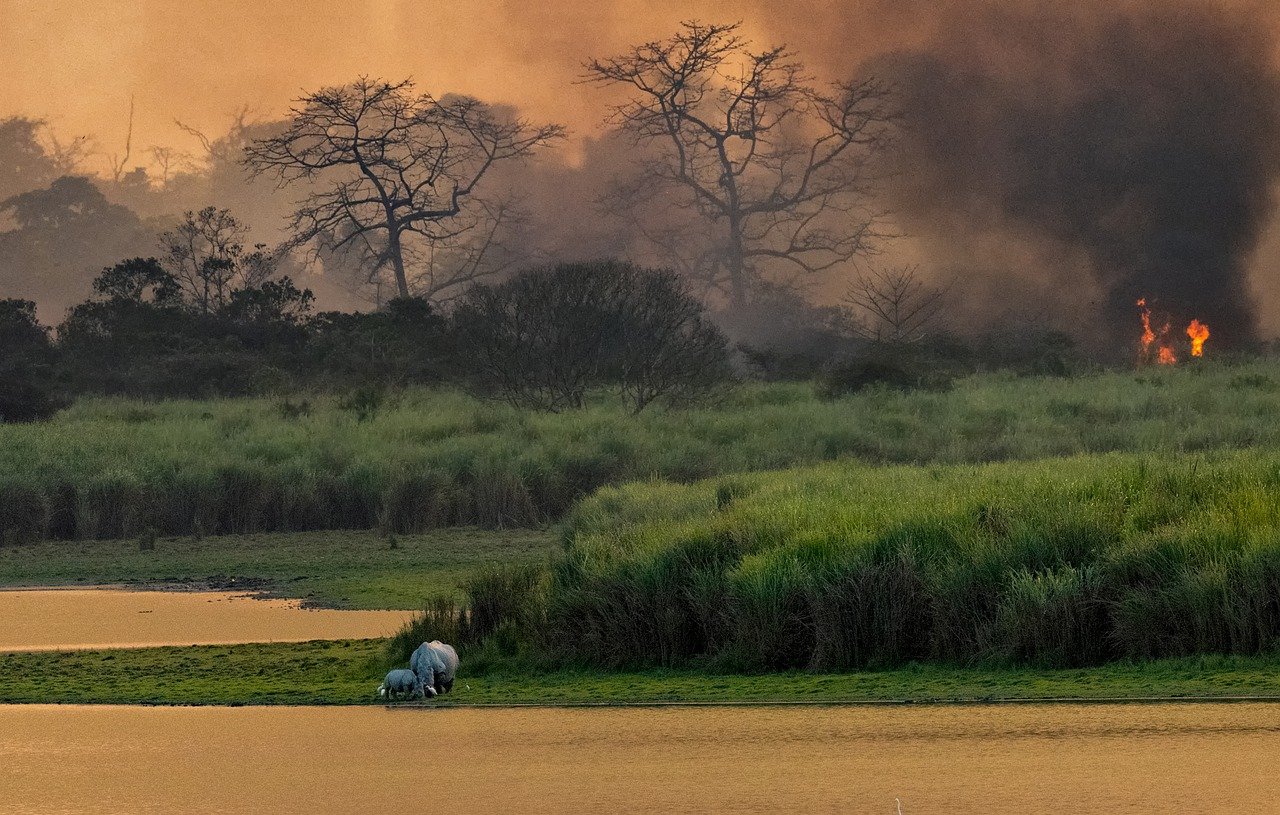
Economic Benefits
When we think about the relationship between ethical hunting and wildlife conservation, one might not immediately consider the economic aspects involved. However, the truth is that ethical hunting can be a significant source of revenue that directly supports wildlife protection efforts. By implementing sustainable hunting practices, communities can benefit economically, which in turn fosters a greater commitment to conservation. This creates a win-win scenario where both wildlife and local economies thrive.
One of the most compelling arguments for ethical hunting is its ability to generate funds for conservation initiatives. For instance, hunting permits and licenses often come with hefty fees that contribute to the management and protection of wildlife habitats. These funds can be allocated to various conservation projects, including anti-poaching efforts, habitat restoration, and wildlife research. According to recent studies, in regions where ethical hunting is practiced, the revenue generated can reach millions of dollars annually, which can be crucial for sustaining conservation programs.
Moreover, ethical hunting can create jobs and stimulate local economies. In areas where hunting is regulated and promoted ethically, you’ll find a thriving ecosystem of businesses catering to hunters. From local guides and outfitters to accommodation providers, the economic ripple effect can be substantial. This not only provides employment opportunities but also encourages local communities to engage in conservation efforts actively. When people see a tangible benefit from wildlife, they are more likely to protect it.
Let’s take a closer look at some of the economic benefits associated with ethical hunting:
- Revenue Generation: Funds from hunting licenses and permits directly support conservation efforts.
- Job Creation: Hunting-related activities create jobs in guiding, lodging, and tourism.
- Community Engagement: Local communities become stakeholders in conservation when they see economic benefits.
Additionally, ethical hunting can promote tourism in regions where wildlife is abundant. Tourists who are interested in hunting often travel long distances to participate in regulated hunts. This influx of visitors can lead to increased spending in local economies, benefiting restaurants, shops, and various services. The tourism generated by ethical hunting can be a lifeblood for rural communities, providing them with the necessary resources to thrive while also ensuring that wildlife populations are managed sustainably.
In conclusion, the economic benefits of ethical hunting extend far beyond the immediate financial gains. They create a framework where local communities, conservation efforts, and wildlife can coexist harmoniously. By recognizing the financial incentives tied to ethical hunting, we can foster a culture of conservation that not only protects wildlife but also enriches human lives. As we move forward, it’s essential to continue promoting these practices, ensuring that both the environment and local economies can flourish together.
- What is ethical hunting?
Ethical hunting refers to hunting practices that prioritize the well-being of wildlife populations and their habitats, ensuring sustainability and responsible management. - How does ethical hunting contribute to conservation?
Ethical hunting generates revenue that can be allocated to conservation efforts, creating a financial incentive for local communities to protect wildlife. - Can ethical hunting coexist with wildlife protection?
Yes, when managed properly, ethical hunting can complement wildlife protection efforts by providing economic benefits and fostering community involvement.

Challenges Facing Ethical Hunting
Ethical hunting, while a noble pursuit aimed at balancing wildlife management and conservation, is not without its challenges. One of the most pressing issues is poaching, which undermines the very principles that ethical hunters stand for. Poaching not only threatens wildlife populations but also disrupts ecosystems, making it difficult for conservation efforts to succeed. Imagine a beautifully balanced ecosystem, where every creature plays its part, only to be thrown into chaos by illegal hunting practices. The impact is devastating, and it raises the question: how can ethical hunters justify their practices when the very animals they seek to protect are at risk?
Another significant challenge is habitat destruction. As urban development expands and agriculture intensifies, natural habitats are being lost at an alarming rate. This not only reduces the available space for wildlife but also drives many species towards extinction. Ethical hunters often advocate for conservation, but if the lands they hunt on are continuously being degraded, their efforts may seem futile. It’s like trying to fill a bucket with holes; no matter how much water you pour in, it just keeps draining away.
Moreover, there is a growing public perception issue surrounding hunting in general. Many people view hunting as a barbaric act, equating it with cruelty rather than a means of conservation. This negative perception can hinder ethical hunting initiatives, making it challenging for organizations to gain support and funding. It’s essential for ethical hunters to communicate their practices effectively, showcasing how hunting can be a tool for conservation rather than a threat to wildlife. Engaging in community outreach and education can help bridge this gap, but it requires concerted effort and resources.
Additionally, regulatory inconsistencies pose a challenge. Different regions have varying laws and regulations regarding hunting, which can create confusion and lead to unethical practices. For instance, what is considered ethical hunting in one country might be illegal in another. This inconsistency complicates the efforts of conservation organizations that aim to promote a unified approach to wildlife management. It’s crucial for hunters and conservationists to work together to advocate for clear, consistent regulations that support ethical hunting practices.
Lastly, the economic pressures on local communities can lead to unsustainable hunting practices. In areas where communities rely on hunting for their livelihoods, the temptation to overhunt can be strong, especially if alternative sources of income are scarce. Ethical hunting programs must address these economic challenges by providing viable alternatives and supporting sustainable practices. This might involve creating eco-tourism opportunities or promoting local conservation initiatives that benefit both wildlife and the community.
In summary, while ethical hunting has the potential to contribute positively to wildlife conservation, it faces numerous challenges that must be addressed. From poaching and habitat destruction to public perception and regulatory inconsistencies, these obstacles require a collective effort from hunters, conservationists, and local communities to overcome. Only then can we hope to achieve a harmonious balance between hunting and conservation.
- What is ethical hunting? Ethical hunting refers to practices that prioritize the welfare of wildlife and ecosystems while allowing for sustainable hunting.
- How does hunting contribute to conservation? Hunting can generate revenue for conservation efforts, fund wildlife protection programs, and help manage animal populations to prevent overpopulation and habitat degradation.
- What are some challenges faced by ethical hunters? Challenges include poaching, habitat destruction, public perception, regulatory inconsistencies, and economic pressures on local communities.
- How can ethical hunters improve their practices? By advocating for sustainable practices, engaging in community outreach, and promoting clear regulations that support ethical hunting.

Regulatory Frameworks
The landscape of wildlife conservation and ethical hunting is intricately shaped by . These frameworks consist of laws, policies, and guidelines that govern hunting practices and conservation efforts across various regions. They are essential not only for ensuring sustainable hunting but also for protecting endangered species and preserving natural habitats. Without these regulations, the delicate balance between hunting and conservation could easily tilt, leading to detrimental consequences for wildlife populations and ecosystems.
At the heart of these frameworks are the principles of sustainability and ethical responsibility. Regulations are designed to manage hunting quotas, define hunting seasons, and establish protected areas, all of which are crucial for maintaining wildlife populations. For instance, many regions implement bag limits, which restrict the number of animals a hunter can take in a season. This approach helps prevent overhunting and ensures that species can reproduce and thrive.
Moreover, regulatory frameworks often involve collaboration between various stakeholders, including government agencies, conservation organizations, and local communities. This collaboration is vital for creating comprehensive policies that reflect the needs and values of all parties involved. In many cases, conservation organizations work alongside governments to develop guidelines that promote ethical hunting practices while safeguarding wildlife. For example, the establishment of wildlife reserves and protected areas allows for the sustainable management of both hunting and conservation efforts.
To illustrate the complexity of these frameworks, consider the following table that outlines key components of regulatory frameworks in different regions:
| Region | Key Regulations | Conservation Goals |
|---|---|---|
| Africa | Hunting quotas, protected areas | Protect endangered species, promote eco-tourism |
| North America | Licensing systems, bag limits | Manage wildlife populations, restore habitats |
| Europe | Seasonal restrictions, species protection laws | Conserve biodiversity, maintain ecosystem balance |
In addition to regional regulations, international agreements play a pivotal role in shaping hunting practices and conservation efforts globally. Treaties such as the Convention on International Trade in Endangered Species of Wild Fauna and Flora (CITES) aim to ensure that international trade in wild animals and plants does not threaten their survival. These agreements establish guidelines for ethical hunting practices, promoting a unified approach to wildlife conservation across borders.
However, the effectiveness of these regulatory frameworks can vary significantly based on local legislation and enforcement capabilities. In some areas, laws may be stringent and well-enforced, leading to successful conservation outcomes. In contrast, other regions may struggle with insufficient regulations or weak enforcement, allowing unethical hunting practices to flourish. This inconsistency underscores the need for continuous evaluation and adaptation of regulations to meet the evolving challenges of wildlife conservation.
Ultimately, the success of ethical hunting and wildlife conservation hinges on the strength and adaptability of these regulatory frameworks. By fostering cooperation among stakeholders and ensuring compliance with established guidelines, we can create a sustainable future where both hunting and conservation can coexist harmoniously.
- What is ethical hunting? Ethical hunting refers to hunting practices that prioritize animal welfare, sustainability, and respect for wildlife populations.
- How do regulatory frameworks impact wildlife conservation? Regulatory frameworks establish rules and guidelines that govern hunting practices, ensuring that they align with conservation goals and protect wildlife.
- What role do international agreements play in hunting regulations? International agreements set standards for ethical hunting practices and promote cooperation among countries to protect endangered species.
- Can local communities influence hunting regulations? Yes, local communities often play a crucial role in shaping regulations through their involvement in conservation efforts and sustainable practices.

International Agreements
International agreements play a pivotal role in shaping the landscape of wildlife conservation and ethical hunting practices around the globe. These treaties and accords establish a framework for cooperation among nations, aiming to protect endangered species and their habitats while allowing for regulated hunting practices that can contribute to conservation efforts. One of the most significant agreements is the Convention on International Trade in Endangered Species of Wild Fauna and Flora (CITES), which was established to ensure that international trade in specimens of wild animals and plants does not threaten their survival.
Through CITES, countries commit to regulating the trade of over 35,000 species, which helps prevent over-exploitation and promotes sustainable practices. This agreement highlights the delicate balance between conservation and ethical hunting, as it allows for regulated hunting of certain species while ensuring that populations remain stable. For instance, hunting quotas are established based on scientific assessments, ensuring that any hunting conducted is sustainable and does not jeopardize the species' survival.
Moreover, other international agreements, such as the Convention on Biological Diversity (CBD), further emphasize the importance of protecting biodiversity and promoting sustainable use of biological resources. The CBD encourages nations to develop national strategies for the conservation of biological diversity, which can include ethical hunting practices that contribute to local economies and conservation funding.
However, the effectiveness of these international agreements often hinges on the commitment of individual countries to enforce their provisions. This brings us to the importance of compliance and monitoring. Countries that are signatories to these agreements must not only adopt the necessary laws but also ensure that they are effectively implemented and enforced. This includes regular monitoring of wildlife populations and habitats, as well as the establishment of penalties for violations.
In addition to regulatory frameworks, international cooperation is essential for addressing transboundary issues such as poaching and habitat destruction. For example, countries can collaborate on joint conservation programs or share resources and knowledge to combat illegal hunting activities. Such partnerships can amplify the impact of ethical hunting by ensuring that it is carried out responsibly and in a manner that supports conservation goals.
To illustrate the importance of international agreements in wildlife conservation, consider the following table that summarizes key treaties and their objectives:
| Treaty | Year Established | Main Objectives |
|---|---|---|
| CITES | 1973 | Regulate international trade of endangered species |
| Convention on Biological Diversity (CBD) | 1992 | Protect biodiversity and promote sustainable use of resources |
| Ramsar Convention | 1971 | Conserve wetlands and their resources |
In conclusion, international agreements are crucial for fostering a global approach to wildlife conservation and ethical hunting. They provide the necessary guidelines and frameworks for countries to work together, ensuring that hunting practices are not only sustainable but also contribute to the protection of wildlife and their habitats. As we navigate the complexities of conservation, these treaties remind us of our shared responsibility to safeguard the planet's biodiversity for future generations.
1. What is the role of CITES in ethical hunting?
CITES regulates international trade in endangered species, ensuring that hunting practices are sustainable and do not threaten the survival of species.
2. How do international agreements impact local hunting practices?
International agreements set guidelines that local laws must follow, which can enhance sustainable hunting practices while protecting wildlife.
3. Can ethical hunting contribute to conservation efforts?
Yes, ethical hunting can generate revenue for conservation initiatives and help manage wildlife populations sustainably.
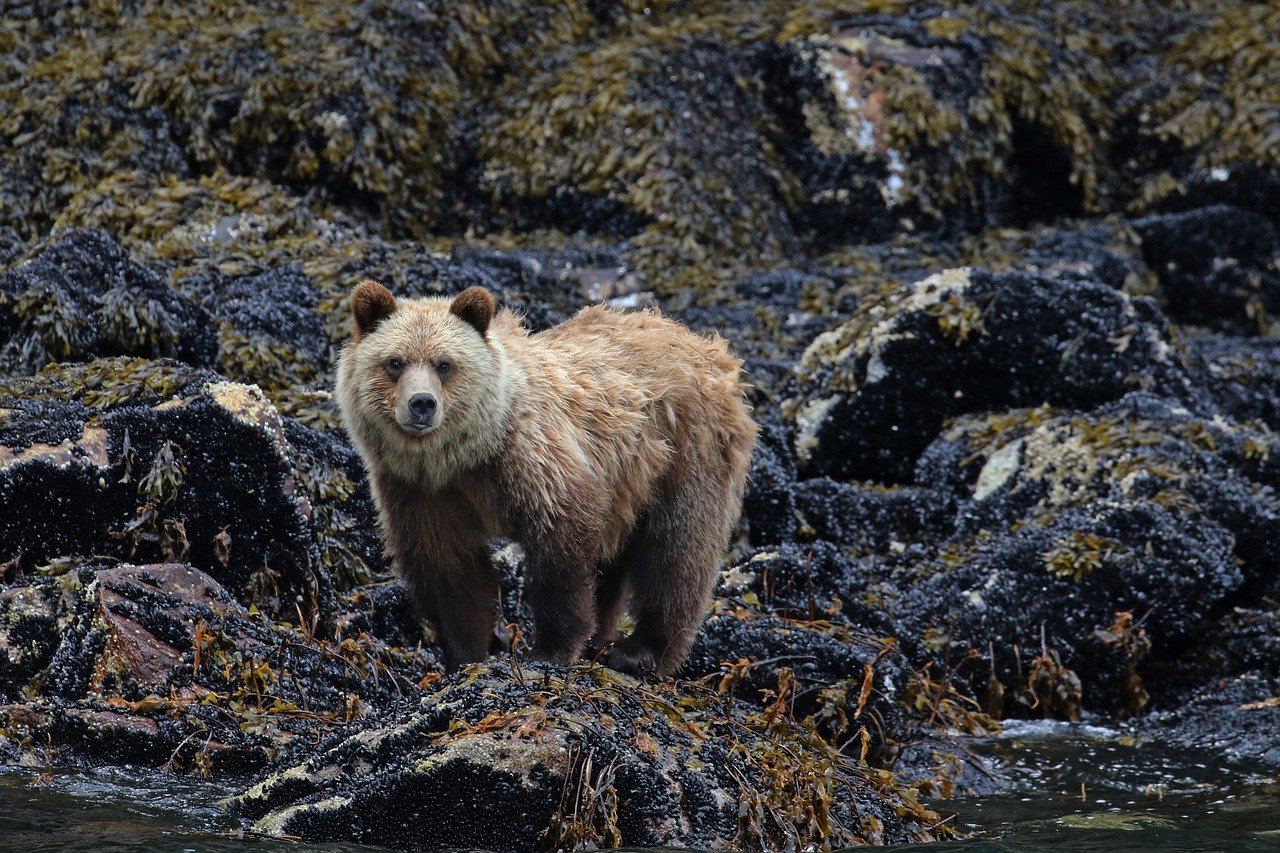
Local Legislation
When it comes to ethical hunting and wildlife conservation, serves as the backbone of sustainable practices. Each region has its own unique set of laws and regulations that shape how hunting is conducted, which can either bolster conservation efforts or, unfortunately, undermine them. For instance, in some areas, stringent hunting regulations are put in place to protect endangered species, while in others, lax enforcement of laws can lead to overhunting and habitat destruction.
Understanding the intricacies of local legislation is crucial for hunters and conservationists alike. These laws often dictate hunting seasons, bag limits, and methods of take, all of which are designed to maintain a balance in wildlife populations. However, the effectiveness of these regulations largely depends on local governance and community involvement. When communities actively participate in the creation and enforcement of these laws, the likelihood of successful conservation increases.
Moreover, local legislation can vary significantly from one region to another, influenced by factors such as cultural attitudes towards hunting, economic conditions, and the specific wildlife species present in the area. For example, in regions where hunting is a traditional practice, laws may be more permissive, allowing for greater hunting access. Conversely, in areas where wildlife tourism is a significant economic driver, stricter regulations may be enforced to protect animal populations and habitats.
To illustrate the impact of local legislation, consider the following table that compares hunting regulations across different regions:
| Region | Hunting Season | Bag Limit | Methods Allowed |
|---|---|---|---|
| Region A | October - December | 2 deer per season | Rifle, Bow |
| Region B | September - November | 1 deer per week | Shotgun, Bow |
| Region C | Year-round | No limit | All methods |
This table showcases how regulations can vary widely, affecting both the hunting experience and the conservation outcomes in each region. In regions with stricter laws, we often see healthier wildlife populations and more robust conservation efforts. On the other hand, regions with fewer restrictions may struggle with overhunting and declining species.
In conclusion, local legislation is not just a set of rules; it is a vital framework that can determine the success of ethical hunting practices and wildlife conservation efforts. By fostering community engagement and ensuring that laws are enforced, we can create a sustainable balance that benefits both wildlife and hunters. As we navigate the complexities of local regulations, it’s essential to remember that every action taken at the local level has the potential to resonate far beyond the immediate environment.
- What is ethical hunting? Ethical hunting refers to practices that are responsible, sustainable, and respectful towards wildlife and their habitats.
- How does local legislation impact hunting? Local legislation can dictate hunting seasons, bag limits, and methods, influencing both the hunting experience and wildlife conservation efforts.
- Can hunting contribute to conservation? Yes, when regulated properly, hunting can generate funds for conservation efforts and help manage wildlife populations sustainably.
- What role do communities play in hunting regulations? Communities are essential for creating and enforcing local laws, ensuring that they reflect the needs and values of the people living in the area.
Frequently Asked Questions
- What is ethical hunting?
Ethical hunting refers to practices that prioritize respect for wildlife and the environment. It involves adhering to guidelines that ensure sustainable hunting, promote animal welfare, and contribute positively to conservation efforts. Think of it as hunting with a conscience, where the aim is not just to harvest game but to support the ecosystem.
- How does ethical hunting contribute to wildlife conservation?
Ethical hunting can actually play a vital role in wildlife conservation by providing funding for conservation programs, helping manage animal populations, and fostering community involvement. When done responsibly, it can create a balance where both wildlife and hunters benefit, ensuring that ecosystems remain healthy and diverse.
- Are there successful examples of ethical hunting aiding conservation?
Absolutely! There are numerous case studies where ethical hunting has led to positive outcomes for wildlife. For instance, in certain regions of Africa, regulated hunting has helped fund anti-poaching efforts and habitat restoration, proving that when managed correctly, hunting can be a beneficial tool in conservation.
- What challenges does ethical hunting face?
Despite its benefits, ethical hunting faces challenges like poaching, habitat destruction, and negative public perception. These issues can undermine conservation efforts and make it difficult to maintain sustainable hunting practices. It's crucial for communities and organizations to work together to overcome these obstacles.
- How do conservation organizations support ethical hunting?
Conservation organizations play a key role by promoting sustainable hunting practices, conducting research, and advocating for policies that protect wildlife. They often collaborate with hunters to ensure that hunting is regulated and that it contributes to broader conservation goals, creating a win-win scenario for both wildlife and people.
- What are the regulatory frameworks for ethical hunting?
Regulatory frameworks vary by region but generally include laws and policies that govern hunting seasons, quotas, and species protection. These regulations are essential for ensuring that hunting is conducted ethically and sustainably, helping to maintain healthy wildlife populations while supporting conservation efforts.
- How do international agreements impact ethical hunting?
International agreements, such as CITES (the Convention on International Trade in Endangered Species), play a crucial role in regulating hunting practices worldwide. They help ensure that hunting is sustainable and that endangered species are protected, thereby promoting ethical hunting on a global scale.
- Can local legislation affect hunting practices?
Yes, local legislation can significantly influence hunting practices. Depending on the laws in a specific region, hunting can either be supported or restricted. Strong local regulations can promote ethical hunting, while lax laws might lead to unsustainable practices that harm wildlife and habitats.



















